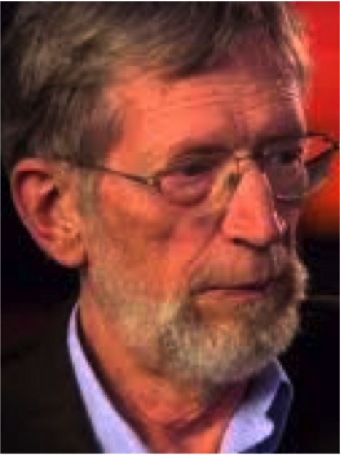
ONTOLOGICAL CONCEPTS
In our last blog we defined the following:
• “Maximal excellence” exists in any being who possesses the three “excellent-making properties” of:
1. omniscience,
2. omnipotence and
3. moral perfection.
• “Maximal greatness” exists in any being who possesses these properties in EVERY possible world. “Maximal greatness” is the same as saying “greatest conceivable being.”
• “Possible Worlds” refers to various descriptions of reality that could conceivably or potentially exist. Each description is comprised of a set of propositions. Propositions must be true and must not conflict with one another. There are aspects of this existence that could have been configured differently. If we change a proposition, that is a different possible world or description of reality. This present reality that we live in is not the only one that could possibly exist.
THE ONTOLOGICAL ARGUMENT FOR GOD’S EXISTENCE
Now that we understand the concepts of a “possible world” and a “maximally great being,” let’s examine the ontological argument:
1. It is possible that a maximally great being exists.
2. If it’s possible that a maximally great being exists, then it exists in some possible world.
3. If a maximally great being exists in some possible world, then it exists in every possible world.
4. If a maximally great being exists in every possible world, then it exists in the actual world.
5. If a maximally great being exists in the actual world, then a maximally great being exists.
Conclusion: Therefore, a maximally great being exists.
PREMISE 1 OF THE ONTOLOGICAL ARGUMENT
It is an interesting fact that premises 2 through 5 are not very controversial, but premise 1 is where the controversy resides. If you can make a credible case that God’s existence is “possible,” then most professional philosophers will concede that God’s existence is probable. So most of the controversy centers on premise 1.
THE INTUITIVE COHERENCE OF A MAXIMALLY GREAT BEING IN PREMISE 1
Premise 1 says: “It is possible that a maximally great being exists,” and everything in the ontological argument seems to hinge on this premise. But in order for premise 1 to fail, we must be able to logically conclude that the phrase “maximally great being” is incoherent.
First, let’s consider some obviously incoherent concepts. For example, the phrases “square circle” and “married bachelor” are obviously self-contradictory and confusing. Once you have a clear understanding what each word in these two phrases means, nothing about them would make sense. Any argument that attempted to use such incoherent phrases would be defeated.
However, the phrase “maximally great being” does not seem incoherent to even the slightest degree. It is a relatively simple concept: an all-knowing, all-powerful, morally perfect being who must exist in every possible world.
There is an intuitive sense in which most people who hear the explanation for a maximally great being are struck by its simplicity and coherence.
PARODIES OF THE ARGUMENT IN PREMISE 1
Once again, premise 1 says: “It is possible that a maximally great being exists.” Despite the intuitive coherence of premise 1, atheist pundits who attack the ontological argument spend almost all of their energy on this first premise. Instead of using logic to discredit the premise, detractors frequently create parodies intended to demean the idea of a “maximally great being.”
In internet debates, you can hear detractors of the ontological argument skewering its proponents with parodies like “a necessarily existent lion” or “a maximally great pizza” or a “most perfect island.” These detractors make the claim that their parodies could just as easily exist and are just as coherent as the idea of “a maximally great being.”
EXCELLENT-MAKING PROPERTIES IN EACH OF THE PARODIES
Christians say the “excellent-making properties” for a “maximally great being” would be that this being possesses omniscience, omnipotence and moral perfection in every possible world. So what are the “excellent-making properties” for a lion, pizza and island?
What are the “excellent-making properties” for a pizza? For example, would “a maximally excellent pizza” have more or less pepperoni? deep dish or thin crust? the most or least amount of cheese? Unfortunately, opinions vary and there is no one standard for “maximal excellence” in a pizza. We just can’t know what that standard would be.
Also, a “maximally excellent pizza” would have to be necessarily existing. If its existence is necessary, it would have to exist in every possible world (every description of potential reality). So if a pizza existed necessarily, it couldn’t be eaten. This whole idea sounds silly because we have no standard for maximal excellence in a pizza and it sounds bizarre to suggest that a pizza must exist in every possible world. A “maximally excellent pizza” is an incoherent idea that is NOT analogous to the Christian concept of a “maximally great being.”
What would be the “perfect-making properties” of “a most perfect island”? Would “a most perfect island” have waves that are six inches high or 40 feet high? ten palm trees or a million of them? mountains or flat? resorts, or would it be isolated? surfing? lots of hula girls or few? It’s not clear what “perfect” would mean in the case of an island. Such an island is not analogous to a maximally great being.
Regarding the parody of “a necessarily existent lion” what would that entail? As we learned from G.W. Leibniz in another blog, “necessary” means it would be impossible for the lion not to exist, the lion would have to be past eternal and the lion would have to exist in every possible world (potential description of reality). Are there lions that fit this description? No. So the lion analogy is also ridiculous.
Each of these attempted analogies is incoherent. None of them make as much sense as the concept of a maximally great being.
EXCELLENT-MAKING PROPERTIES OF A “MAXIMALLY GREAT BEING”
One crucial distinction between a “maximally great being” and the parodies we’ve mentioned is that each attribute of God clearly describes an “intrinsic maximum value” that is easily understood. In the example of a pizza, would we achieve maximum greatness if we piled pepperoni a mile high on the pizza? In the case of the lion, would greatness be defined by which one could roar the loudest? In each of the parodies, there is no “intrinsic maximum value” for any “excellent-making properties” of a lion, pizza or island.
Intrinsic Maximum Values Of A Maximally Great Being
1. Omniscience: This is a quality of maximal excellence that is easily understood: a property of knowing all truth that is logically possible. It’s impossible to know anything more than that, so “maximal excellence” as it applies to omniscience is very clear.
2. Omnipotence: This means that God is all-powerful (subject to that which is logically possible). This is also an intrinsic maximum value. There is no greater power than that.
3. Morally Perfect: This is also an intrinsic maximum value that is easily understood. God always does what is morally right. There is no higher degree of morality than that.
Each of these excellent-making properties has a very clear “maximum value” that describes ultimate greatness.
ATHEISTS: “ISN’T A QUASI-MAXIMALLY GREAT BEING JUST AS PLAUSIBLE?”
Remember, premise 1 says, “It is possible that a maximally great being exists.” Now let’s look at a second argument that atheism sometimes uses.
Detractors of premise 1 will sometimes say: “Why just believe in a being who is maximally great? For all we know, there could also be a being who is ‘quasi-maximally great.'” What is this referring to? Maybe this being has a perfect knowledge of the past and present but is unable to discern the impact of future contingent events. Such a being would only be “quasi-maximally great.”
Atheists would ask, “If there is a good rationale for thinking that Christians’ ‘maximally great being’ exists, why wouldn’t atheist’s theoretical idea of a ‘quasi-maximally great being’ be just as coherent and just as plausible?”
CHRISTIANS’ RESPONSE TO ATHEISTS’ IDEA OF A QUASI-MAXIMALLY GREAT BEING”
First, maximal greatness is logically incompatible with the idea of quasi-maximal greatness. That means that if there really is a maximally great being, there CANNOT be a quasi-maximally great being. The two are mutually exclusive.
Here is why. A “maximally great being” is all-powerful. That means that he created all things. In any possible world, no concrete object could exist that would be beyond the reach of his creative power. Even the existence of a “quasi being” (we’ll call it this) would be SUBJECT TO the maximally great being’s free will to choose what he would create.
One aspect of the maximally great being’s creative power would be the ability to refrain from creating something in certain possible worlds. For instance, there could be possible worlds where a “quasi being” would potentially NOT exist because the maximally great being elected not to place him in those worlds.
That would mean that the “quasi being” did NOT exist NECESSARILY. Any being who does not exist necessarily (i.e., in every possible world) CANNOT even be “quasi-maximally great.” Therefore, it would be impossible for a quasi-maximally great being to exist at all!
So premise 1, that says “it’s possible that a maximally great being exists,” is not undermined in the least by atheists’ hypothetical suggestion that a “quasi-maximally great being” might exist.
Atheists say that our embracing the idea of a maximally great being INCREASES the probability that a “quasi-maximally great being” might exist. However, the opposite is true. The existence of a maximally great being actually makes it NEARLY IMPOSSIBLE that a “quasi-maximally great being” exists.
The idea of a “maximally great being” that is found in premise 1 is coherent.
SUMMARY
We started this blog by saying that most of the controversy over the ontological argument centers on premise 1, which states, “It is possible that a maximally great being exists.” We said that for premise 1 to fail, atheists must demonstrate that the concept of a “maximally great being” is incoherent.
We mentioned that there is an “intuitive coherence” in the idea of a maximally great being. Instead of using logic to discredit premise 1, most pundits for atheism will launch parodies intended to demean the idea of a “maximally great being.” We discussed how each parody that arises fails to have “excellent-making properties” that have some kind of “intrinsic maximum values,” like the attributes of God do (e.g., omniscience, omnipotence and moral perfection).
In addition to parodies, atheists sometimes ask us to entertain the thought of a hypothetical “quasi-maximally great being.” Since such hypothetical beings lack the attribute of necessarily existing in all possible worlds, they actually cannot be even “quasi-maximally great.” In other words, such a thing is incompatible with the idea of a maximally great being.
So if there is a “maximally great being,” it would be impossible for a “quasi-maximally great being” to even exist.
CONCLUSION
Hypothetical ideas about parodies and quasi-maximally great beings are not able to act as defeaters of the first premise in the ontological argument.
Premise 1’s concept of a “maximally great being” is a coherent idea. At this point, premise 1 appears more likely than not to be true.

